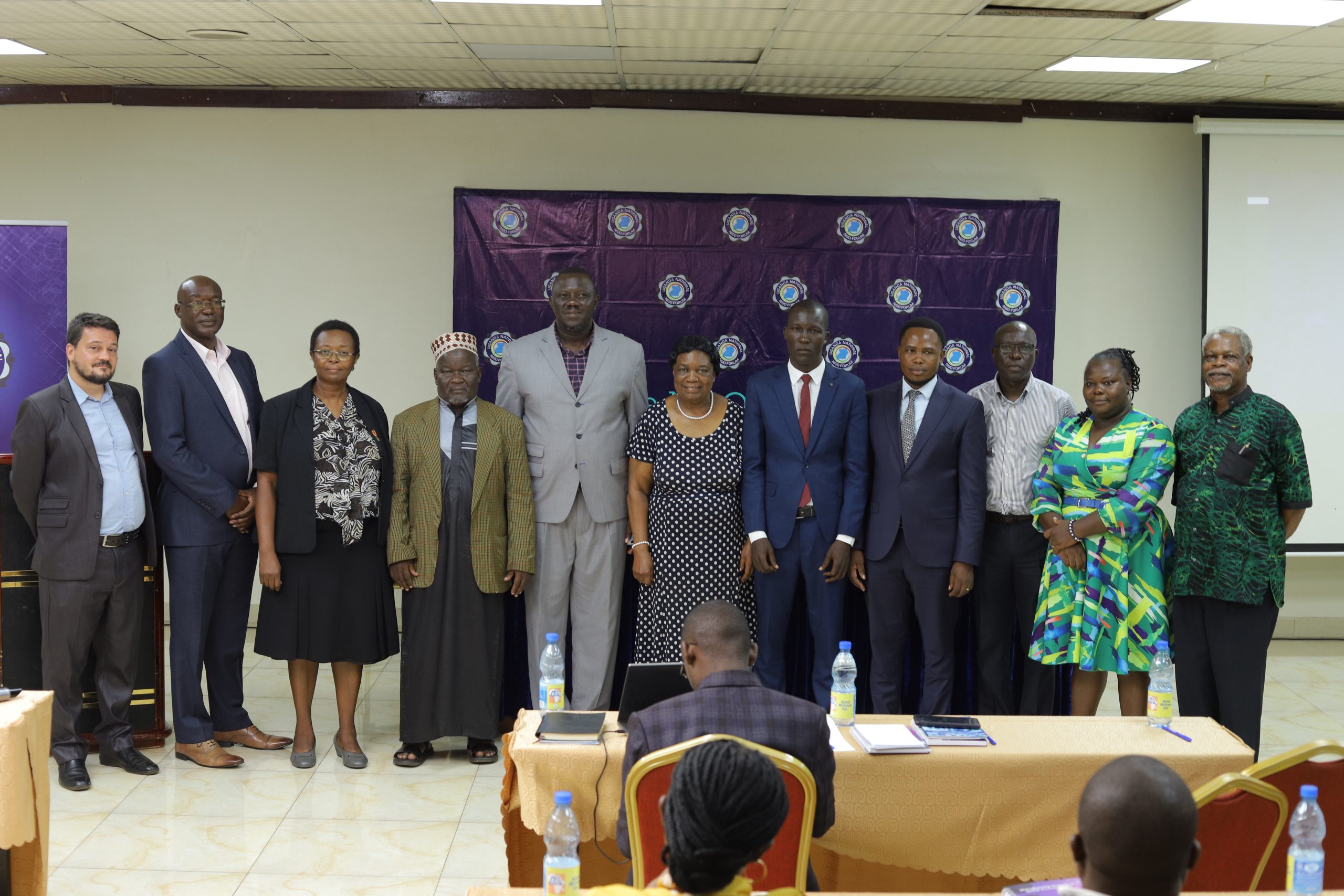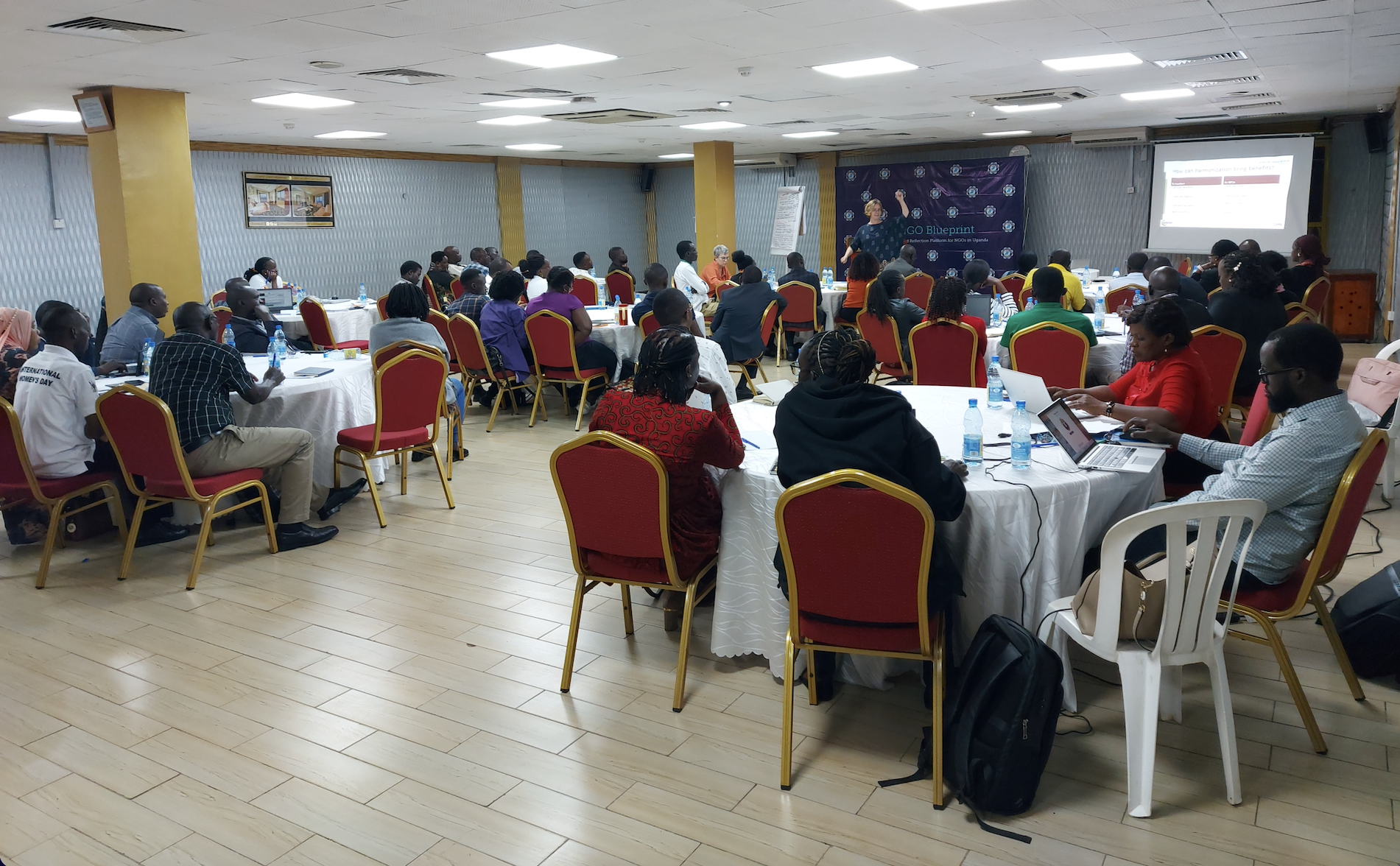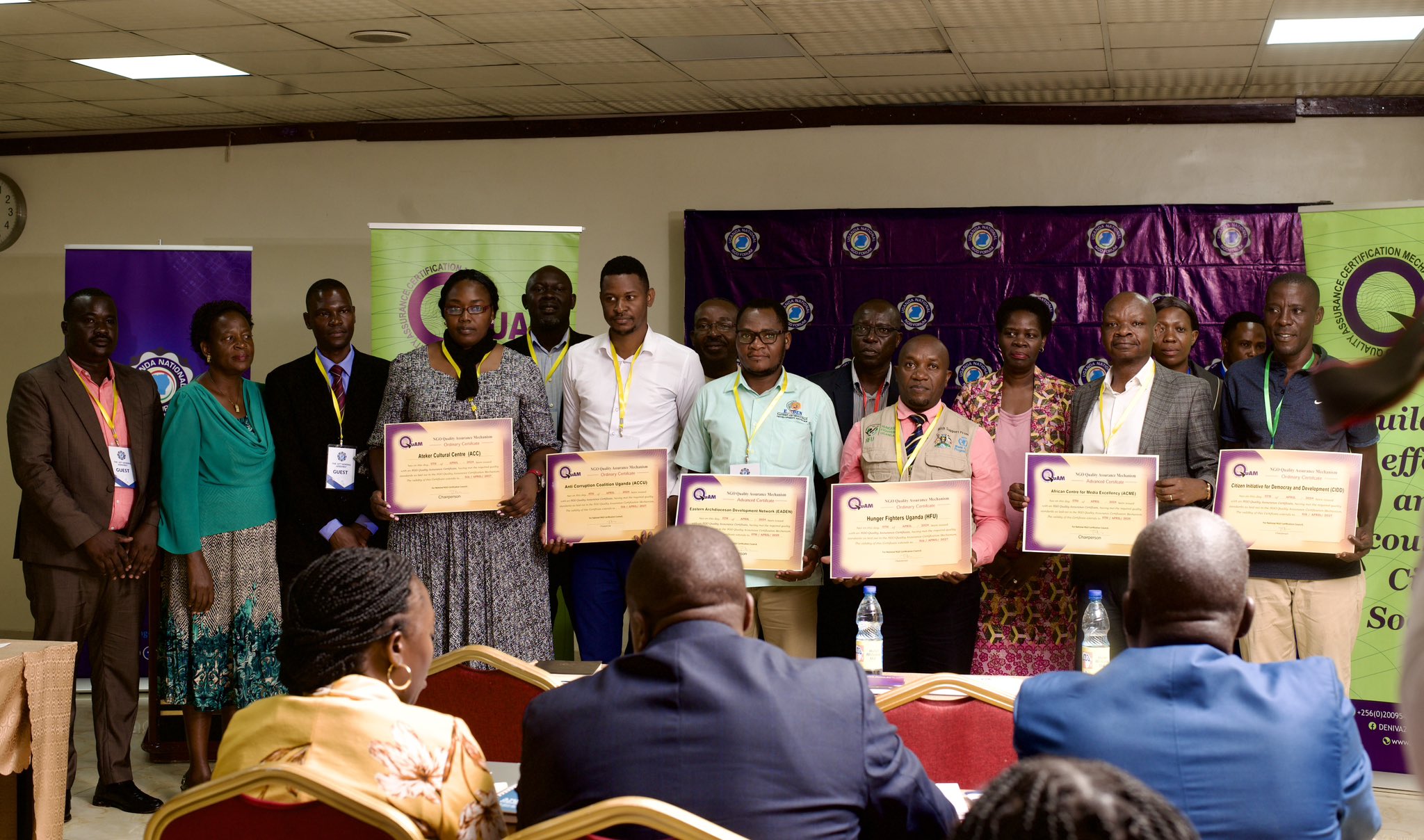Peaceful Power Transition Central to Uganda’s Prosperity
Uganda’s political history has been characterized by a violent transfer of power from one president to another. The recent entrenchment of patronage evidenced by deepened narrowing of civic space seen in the offing of unconstitutional legislation such as the Public Order and Management Act, has raised the level of anxiety about political transition in the country. This reflects the need for a more comprehensive and decisive engagement both by the citizens and the country’s leadership.
This was part of the annual CSO New Year Message delivered to the country at a press conference held at the Uganda National NGO Forum offices by a host of CSO leaders. It was noted that the discussion should focus on the principles that guide the transition in Uganda and touch on all aspects of transition to a just status quo.
The events that transpired in most African countries evidence the fact that chaos precedes when a strong leader or person who has been in leadership of a country for long, phases out. Uganda’s current president has been in power for over 28 years. While it is irrefutable that the Ugandan Electoral Commission has organized periodic elections there’s need to emphasize the fact that the current electoral management system cannot help deliver a peaceful transition which ultimately underscores the importance of the electoral reform proposals presented in the citizen’s compact.
The CSO leaders included Mr. Richard Ssewakiryanga – the Executive Director of the Uganda National NGO Forum, Mr. Arthur Larok – the Country Director Action Aid International Uganda, Mr. Leonard Okello – the CEO of the Uhuru Institute, Ms. Irene Ovonji – the Executive Director of FIDA Uganda, Ms. Patricia Munabi – the Executive Director of FOWODE, and Mr. Crispy Kaheru – the Coordinator of CCEDU. They promised to deliver a discussion paper about the essence of transition and defining the nature of transition Ugandans would like to see. They appealed to Ugandans not to wait for transition to define them but rather define the transition they would like.
CSO leaders decried the continued wanton theft of public resources by public officials, the shameless assault on Freedom of Association and Expression by the state and its operatives, the spiraling Youth Unemployment which has reduced the levels of productivity, the increased militarization of every aspect of society and the crisis of institutions that has led to deficiencies and inefficiencies in service delivery. They pledged commitment to re-affirm citizen centrality taking forward the compact on free and fair elections and carry on the struggle to reclaim the integrity of the institutions.
As such, Ugandans were implored to remain unyielding in the continuation of advocacy for the separation of powers and the institutional independence of the three arms of the government, expand on efforts to monitor the performance of public institutions, mobilize fellow citizens and put pressure on all actors to ensure the effective performance of all institutions. Citizens were also urged to keep the focus on good corporate governance within civil society and other institutions including political parties. Finally there is need for sustenance of the unwavering efforts in the defense of the integrity of the Constitution of Uganda so as to reclaim the integrity of the institutions in the country.



